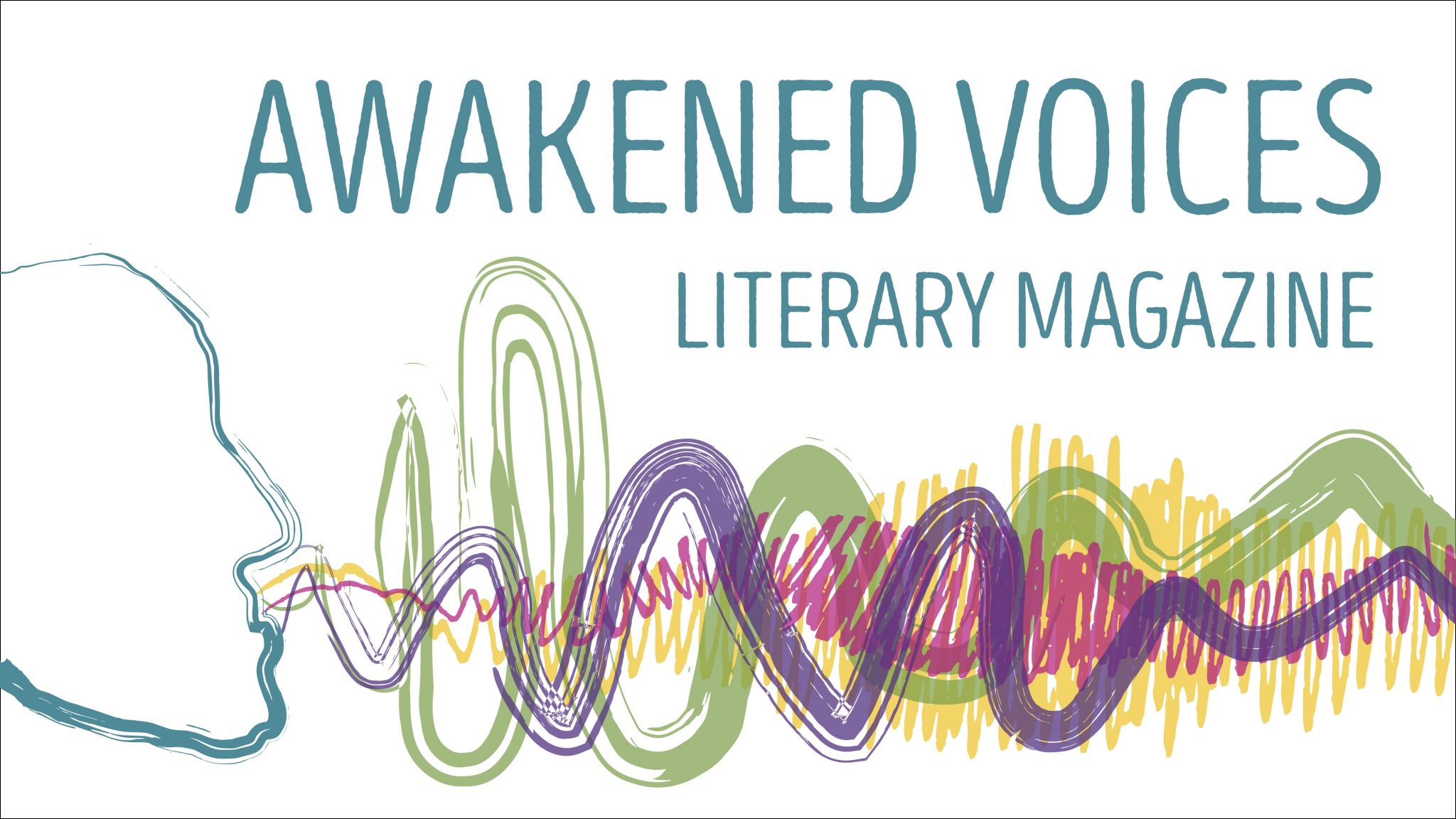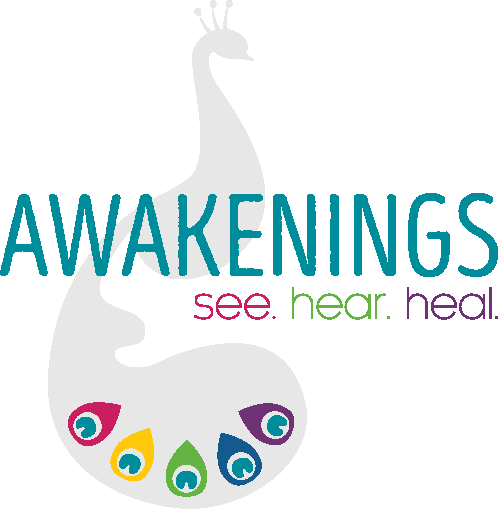
| Sometimes the places where we hope to find the most safety turn out to offer safety and recovery in some areas but not in others. Even organizations that have a reputation for being very helpful and healing can be places where harm occurs. Silver Damsen bravely speaks about being silenced. |

When the Voiceless Whisper
by Silver Damsen
I’ve survived more than one type of sexual violence: child abuse and multiple examples of date rape where I chose to go along with it, rather than physically fight. This is because I decided it was safer not to fight. This doesn’t mean I’m a patsy (–“a person who is easy to manipulate or victimize: a pushover,” Merriam-Webster). I’m not. It means I don’t like getting physically beaten up. It means I’m aware that even if women are equal to men in all other ways, the average woman isn’t as strong as the average man. The average child has even less of a chance.
I think about becoming a martial arts expert so I will be safer, but no one can ever be truly safe. Still, I carry small weapons a woman can actually use. My favorite is attached to my keychain. It’s ridged and shaped to fit between the fingers and ends in a pointed tip. It looks most like a tent stake for “rocky ground” to anyone who hasn’t seen this kind of weapon but hikes and camps. To those not familiar with either: it just looks scary, which is the idea.
Guns, I’ve read, are impractical unless a woman is physically strong enough to keep the weapon in her control, has easy access, and can shoot to kill without hesitation. If the above isn’t true in every sense, the gun can easily be taken away and used against her.
So, while I think about buying a gun and going to a shooting range, I don’t because it asks for more commitment than I can give: Do I really want to kill someone? Can I carry the burden of ending another human life? But because I don’t, doesn’t mean I want to be raped. No one wants to be raped. If someone wants a sexual contact, it isn’t rape.
I consider myself more alert than afraid. One doesn’t want to appear afraid.
If I’m walking alone—and I like to walk because it’s good exercise, good for the environment, convenient—and a driver, always a man, drives up alongside me and repeatedly offers me a ride in spite of my shaking head, I will growl/scream, “GET THE FUCK AWAY FROM ME, NOW!” It is important to say “fuck,” and it is important to bring my voice into a growing scream. Sometimes, I try to move my wrist so my tent-stake-like-weapon is more visible. So far, this combination has always worked.
I don’t intentionally try to take large chances, but almost everything is a small chance. By this I mean I don’t go to bars by myself, forget to wear underwear, get trashed and invite men to dance with me. I’m not saying it wouldn’t be fun to do this. It’s just I’m too afraid—and too aware of the likely consequences—to do this.
However, I remember watching a pretty woman at a university bar who seemed to do this, and I didn’t judge her as a slut. What I hoped was she’d chosen wisely, and the man she took home would show her the good time I felt she deserved.
But this isn’t what I’m really writing about, even if it’s the background to the story. What I’m writing about is sexual predation in Alcoholics Anonymous and other related 12-Step programs. It’s about how even someone who isn’t easy prey is still treated as prey in Alcoholics Anonymous. This act of predation is called “13th Stepping.”
This isn’t a term outsiders have inflicted on those in this “spiritual program.” It’s one they embrace—even if some are still ashamed of it. It refers to the endemic practice of those who have completed the 12 Steps that then use this pretense of morality to seduce, lie to, manipulate, and sometimes rape, those who don’t yet know they will be blamed for their own exploitation and pain.
The logic of this pattern I gathered from reading the Big Book (the nickname for the primary text of Alcoholics Anonymous, the Big Daddy of all 12-Step programs—titled Alcoholics Anonymous); sitting through over a 1,000 meetings of AA, NA and Al-Anon combined; listening to the instruction of dozens of old-timer men; and from trying to understand the “suggestions” of my half-dozen or so female sponsors; then leaving 12-Step program and finding what is called AntiAA or #ExposeAA and listening to what other former members have said about 12-Step ideology.
The synthesis of which is that according to the 12-Step program, one knows someone is living a “spiritual” life by the fact the person in question is sober. This is because only the Higher Power (which can be anything but is most often a traditional “god,” or more curiously the group of 12 Step as whole in an abstract sense but can be any imaginable inanimate object) can remove the craving for the “addict’s” drug of choice. Without the intercession of the Higher Power, one will continue to use to the point of “jail, institution, or death.” Thus, according to 12 Step, it’s always the fault of the person who feels they’ve been victimized for any residual pain.
Not surprisingly, the form of exploitation I most frequently saw is also the form most likely to surface in the #Metoo movement. Here, a man with more “time in program,” someone “spiritual,” with respect and power (at least, within the small world in question) is the villain to outsiders and women but still his own hero. As the climax, this director and producer of this sick film on the politics of predation seeks out the vulnerable.
In the case of 12-Step program, this tends to be younger women who are new to sobriety. He then exaggerates his interest in her, so she thinks he cares about her in a personal and meaningful way. The end of this relationship, sometimes after rape, other times merely after coerced sex or a series of creative lies, is always the joke—whether she got it or not—that she had been 13th-Stepped.
However, instead of getting this joke, a woman’s more typical response to the man that feigned interest and then rejected her and blamed her for his act of predation is to drink/use drugs to the point of oblivion, aka to OD, and sometimes to die.
When the woman in question doesn’t die, she’s expected (sometimes even by the courts) to come back to 12 Step more humble and willing to accept the label of slut, whore, etc., or she will be made an outcast. This is because as a female “addict,” she’s expected to have sex with anyone (or rather any man of substantial “sobriety time”) who asks and expect nothing in return because that’s just how it works.
It took me a while to understand how 13th Stepping could be part of a “spiritual path.” The logic is abstract: because it’s God’s will for him to do so—if that’s what the man must do to stay sober.
This perspective isn’t considered “blaming the victim” but rather “taking responsibility”—not on the part of the man for exploitative and predatory behavior but on the part of the woman for recognizing (or rather failing to) that the man was lying to her. If her Higher Power (usually thought of as the Christian God, Jesus, but in addition to 12 Step as a collective, a lightbulb or a doorknob are also popular concepts because 12 Step is “spiritual” and not “religious”) loved her, and she deserved to be protected, she would have known the man was lying. Similarly, if God didn’t approve of the man’s said predatory behavior, God would have taken away “the daily reprieve” from cravings and the man would have begun drinking or using other drugs and be on his way to oblivion and death.
These basic teachings hold true even when applied to those not participating in 12-Step program. For example, I knew a man who, after ten years in AA, was convicted of paying the parents of a nine-year-old girl for sexual acts he then filmed. After another ten years in prison, he came back to the same community with the golden twenty years of sobriety that makes the word of an old timer as valid as any prophet.
Thus, this time in prison for raping little girls had made him closer to God. Even if some in 12-Step program (usually women) might have balked at this definition, those that wanted to judge a child rapist were, according to 12-Step ideology, “angry,” and experiencing the fatal error of “resentment.” Therefore, they had no right to judge. So, the word of this “spiritual” convicted pedophile and child pornographer was trusted. When he said God cursed those who felt “resentment,” because the Higher Power’s will was behind every action, he was wiser than any Disciple of Christ, and as close to the Higher Power as one could hope in this lifetime (independent of whether or not the Higher Power was envisioned as a lightbulb or Christ).
“Resentment,” he said, “is the number one offender. How you know if someone is following the spiritual path and has ‘conscious contact with God’ is if they stay sober in difficult times.”
Thus, in the mind of this convicted child pornographer the fact he’d paid the parents of a child to perform sexual acts (whether with him, or on camera, or both, was never clear), and not drunk or used drugs as part of the aftermath, proved God (his Higher Power because, as a traditionalist, he choose to avoid the fraught context of selecting a lightbulb) gave his approbation for these actions. Indeed, if this man’s Higher Power hadn’t approved, the man’s cravings for drugs and alcohol would have returned subsequent to his sexual/violent acts against said minor child.
A particular section of the Big Book (p. 62) that an unbiased reader would conclude encourages blaming of the victim, yet AA members insist advocates taking responsibility, is one many members of 12 Step told me to read and reread. But the occasion of this directive I remember most clearly involves an old timer who was married but, by report, had an open relationship with his wife and might have been having sex with my sponsor at the time.
He’s dead now—cancer—and he died very soon after I stopped going to meetings. But when I knew him, he was still as strong as a bull and encouraged me to leap into his arms when I saw him as if we were practicing cheerleading moves. After I ‘d leapt into his arms for that day, and then read page 62 for at least the 100th time, as he commanded/suggested, I tried to tell him that it didn’t apply in my case. He said, “It applies in every case.” Here’s the said quotation:
“Selfishness – self-centeredness! That, we think, is the root of our troubles. Driven by a hundred forms of fear, self-delusion, self-seeking, and self-pity, we step on the toes of our fellows and they retaliate. Sometimes they hurt us, seemingly without provocation, but we invariably find that at some time in the past we have made decisions based on self which later placed us in a position to be hurt.”
I tried to point out the word “invariably,” which means without a single exception, was problematic and exemplified the logic of the abuser. He walked away from me before I’d finished speaking,
Not surprisingly, date rape was a topic that came up often in “women’s meetings.” A woman I thought should have known better than to blame herself but still did—because that was what 12 Step told her to do—exemplifies the pattern in question. (I don’t remember her name, and so have no way of knowing if she is living or dead, as I type the testimony she might repudiate if living). The man whose address and phone number she knew, and his friend, whom she knew but not as well, beat her up during the course of a dual rape. She refused to press charges.
When she was telling this story in this particular Sunday women’s meeting, I became increasingly angry. If she’d decided to fight, even when she knew she would pay for fighting, she should have pressed charges. This is because fighting is the best way to be believed by the police and make the charges stick.
However, the “spiritual” interpretation was very different from my own. Thus, the woman who had been raped was as proud of herself for fighting as for not pressing charges. She even defined her “spiritual growth,” in terms of seeing “her part,” as wanting affection and attention when she should have known the man and his . . . friend only wanted sex.
Thus, she didn’t have a right to press rape or assault charges. And to prove she didn’t want to be raped, she had to fight and even be injured.
I tried to tell her she had it wrong, getting herself beaten up was the mistake, not wanting affection, rape had nothing to do with her—but she couldn’t hear me over telling me how “unspiritual” I was.
I’m not angry with her, rather I grieve, because the story of AA—and 12 Step program as a whole—is one where the voice of women who have been hurt isn’t heard.
What is listened to is the voice of the exploiter.
Yet the ‘voiceless’ can still whisper. And sometimes whispers roar.
*
Silver Damsen grew up in Southern California. She earned a Ph.D. in English literature from University of Illinois, Urbana-Champaign. Her fiction has appeared in Your Impossible Voice and Central Illinois Buzz. Her activist Facebook account can be found under her name and the orange tick icon. She also moderates an AntiAA group, Expose AA with Memes.

I think that this is an excellent article. I was trapped in 12stepland for 27 years. I think that it is time people started yelling about what is really going on there. Thank you very much for writing this, Dr. Damsen.
A brilliant and justifiable commentary.
An excellent commentary. Well written.